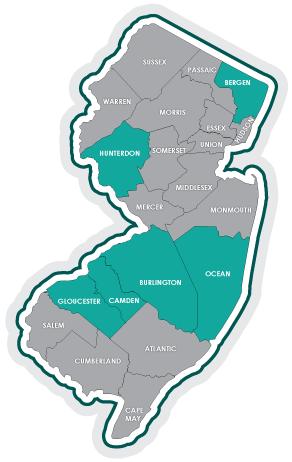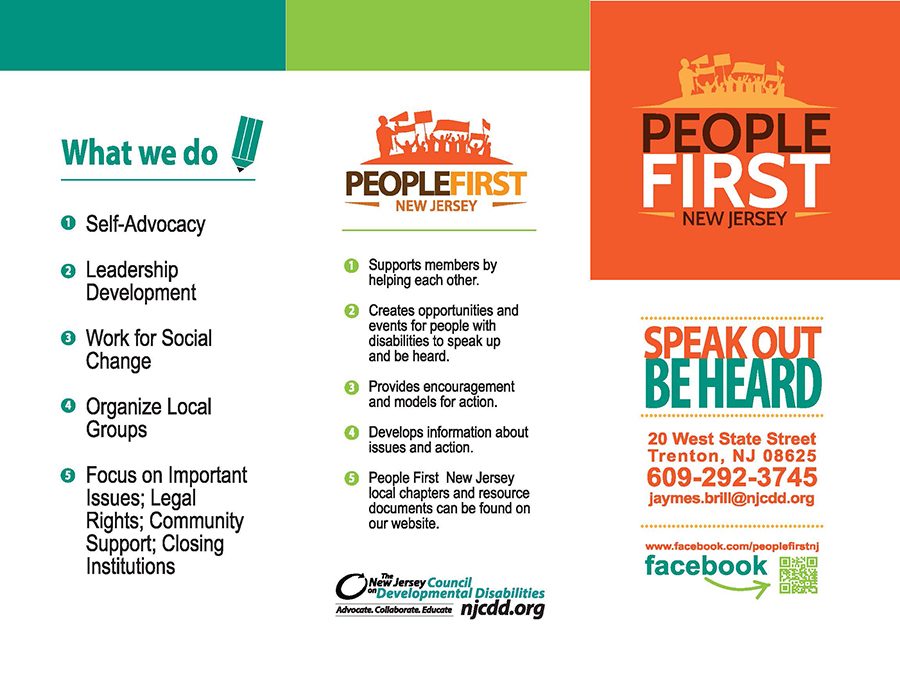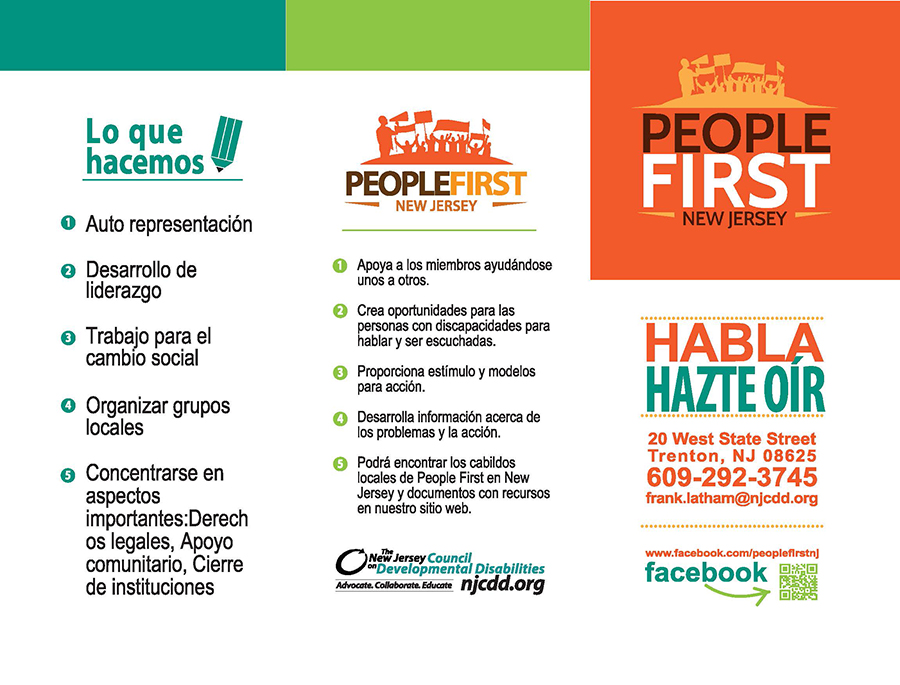
Advocacy By and For People with Disabilities
People First is the major self-advocacy organization in the US currently in 29 states, as well as in Canada, the UK, Germany, New Zealand, Austria, Hong Kong, Japan, and Italy, self-advocates are part of a grassroots movement organized and maintained entirely by individuals with disabilities, and dedicated solely to advancing the rights of citizens with disabilities across the globe.
People First organizations are unique in their philosophy that people with disabilities, no matter their level or type of support needs, are not only fully capable of taking ownership of their advocacy goals, but should work to become as independent as possible; setting their own agendas and maintaining their own network of volunteers and partners.
Now, the NJCDD is continuing to grow it’s People First network across the state developing new chapter and working to increase established chapters with new members. With the mission of growing advocacy efforts and adapting the philosophy of People First, in New Jersey.
Join the Movement in New Jersey
The NJCDD is calling on advocates all over New Jersey to join it’s network of People First New Jersey chapters in your county; uniting to affect real changes in their local communities, and coming together as a solid force to advance the rights and opportunities of people with developmental disabilities on the state level.
At the NJCDD, we’re calling on members of the Council’s former and graduates or our Youth Leadership and Partners In Policymaking programs to help establish these People First groups in their area, and to reach out to other individuals with disabilities to become empowered advocates as well.
You can attend a People First Chapter meeting below or start one in your county by contacting us
Bergen Middlesex
Burlington/Camden Monmouth
Gloucester Cumberland
Hunterdon Salem
Morris Ocean
Join a local People First NJ chapter
Bergen County Chapter
Burlington County Chapter
Camden County Chapter
Gloucester County Chapter
Hunterdon County Chapter
Ocean County Chapter
What is Self Advocacy
There are several ways that people with developmental disabilities describe and define self-advocacy including:
- Speaking up for themselves;
- Making their voices heard;
- Making their views known;
- Making choices and changes in their own lives;
- Coming together to support each other and have a say in the policies and practices that affect their lives.
In summary, self-advocacy means:
- Thinking for yourself;
- Saying what you think;
- Having relationships like anyone else;
- People listening to you;
- Making mistakes;
- Taking risks;
- Taking responsibility;
- Making decisions;
- Standing up for your rights.
Activities of self-advocacy groups include:
- Making people aware of their rights;
- Training and talking to other people about self advocacy;
- Making information more accessible by using audiotapes or pictures;
- Making concrete changes to improve their lives (i.e. improve voter accessibility);
- Working to increase choices and quality of supports;
- Planning and organizing self advocacy conferences;
- Assisting people to speak up about abuse and exploitation;
- Organizing to fight against discrimination.
Contact Us
Frank Latham
Youth Leadership Coordinator
609-292-3453
frank.latham@njcdd.org



